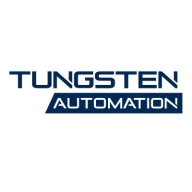

Tungsten RPA and Python RPA compete in the automation solutions category with distinct advantages. Tungsten's robust support and integration capabilities provide an edge for businesses needing comprehensive features. Python RPA's flexibility and extensive library cater to firms prioritizing customization.
Features: Tungsten RPA offers strong analytics tools, third-party integration, and a robust support network. Python RPA stands out with its extensive library of pre-built modules, flexible customization options, and adaptability to specific requirements.
Ease of Deployment and Customer Service: Tungsten RPA is known for straightforward deployment and proactive customer service, easing setup and ongoing use. Python RPA requires more technical expertise but benefits from broad community and documentation support.
Pricing and ROI: Tungsten RPA involves higher initial setup costs due to its comprehensive features and support, leading to substantial ROI for enterprises needing extensive automation. Python RPA offers potentially lower initial investment focusing on adaptability and scalability, providing favorable ROI for businesses that prioritize flexibility and customization.
| Product | Market Share (%) |
|---|---|
| Tungsten RPA | 2.0% |
| Python RPA | 1.5% |
| Other | 96.5% |


| Company Size | Count |
|---|---|
| Small Business | 11 |
| Midsize Enterprise | 1 |
| Large Enterprise | 18 |
Python RPA leverages the power of Python to automate repetitive tasks and workflows, offering a flexible and scalable solution. It's designed for integration across business processes, aiming to enhance efficiency and operational productivity with its versatile capabilities.
Python RPA is employed by businesses to streamline operations, reduce manual workload, and achieve cost savings. Combining Python's robust programming capabilities with automation, it appeals to companies looking to enhance their technology stack. Python RPA's strengths lie in its open-source nature that allows easy customization and a vast library of resources supporting automation tasks. This solution supports a wide range of applications, enabling seamless integration into existing systems and promoting innovation.
What are the key features of Python RPA?Python RPA finds applicability in industries like finance for transaction processing, healthcare for patient record management, and manufacturing for supply chain automation. Its adaptability allows companies to fine-tune the tool to sector-specific challenges, ensuring that automation objectives align with business goals.
We monitor all Robotic Process Automation (RPA) reviews to prevent fraudulent reviews and keep review quality high. We do not post reviews by company employees or direct competitors. We validate each review for authenticity via cross-reference with LinkedIn, and personal follow-up with the reviewer when necessary.